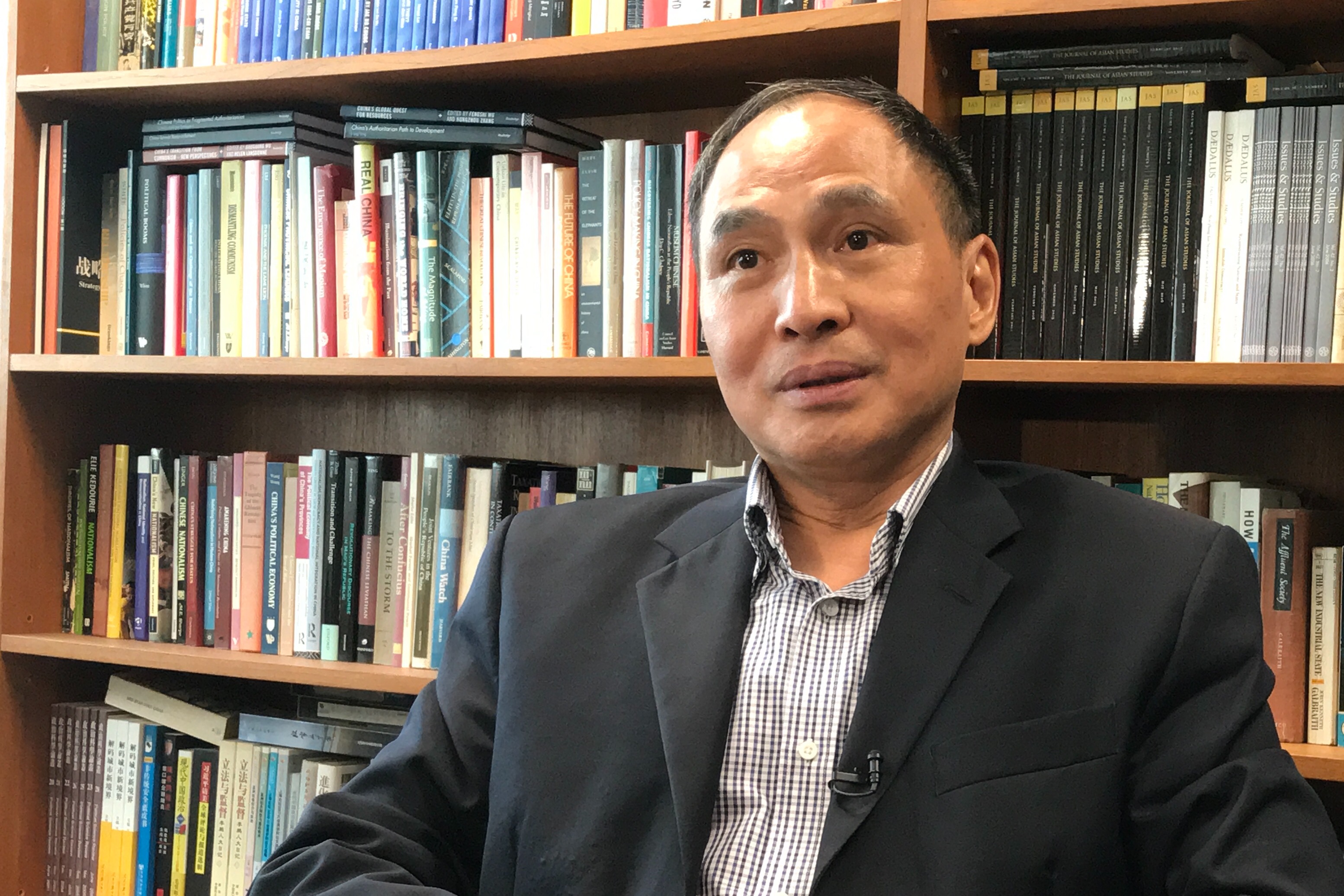
Professor Zheng Yongnian, director of the East Asian Institute at the National University of Singapore. People's Daily/Yu Yichun
Bangkok - Chinese President Xi Jinping Wednesday reaffirmed China's determination to strengthen anti-graft measures during his speech at the opening ceremony of the 19th National Congress of the Communist Party of China (CPC) in Beijing.
"The purpose of the anti-corruption campaign lies in the establishment of a set of overall rules and regulations to prevent and combat corruption, as well as to pursue the modernization of the CPC," Professor Zheng Yongnian, director of the East Asian Institute at the National University of Singapore, said in a recent interview with People's Daily.
Noting that China has made remarkable progress in cracking down on corruption since the 18th CPC National Congress, Zheng said that Xi's anti-corruption campaign is unprecedented.
"Its breadth is manifested in the number of officials who have been trialed, and more officials are under investigation," Zheng explained.
"Its depth covers the 'blind spots' in all fields, including the economy, society, politics and culture, while its height is demonstrated in the rank of officials, including members of the Politburo Standing Committee."
Zheng said the anti-corruption rules and regulations issued since the 18th CPC National Congress have been beneficial. He summarized them in a commentary recently published in Lianhe Zaobao, a Singapore-based Chinese-language newspaper.
First, the effectiveness of anti-corruption agencies. "Thanks to the continuity and depth of the anti-corruption campaign, authority has gradually been strengthened in the Central Commission for Discipline Inspection (CCDI) since the 18th CPC National Congress."Zheng said. He added that the experience from Hong Kong and Singapore shows that centralized authority is of great importance to combat corruption and build a clean government.
Second, the anti-graft campaign has mainly been carried out by the CCDI. The CCDI sends investigators to inspect government agencies and institutions to avoid so-called self-inspection. Anti-corruption inspections within governmental sectors are conducted by their more superior counterparts. For instance, anti-graft inspections targeting provincial authorities are carried out by CCDI.
Third, the revival and implementation of the central inspection system. "This system is expected to play at least two roles: One, to leave no 'blind spots' in the anti-graft campaign; and two, to get rid of vested interests." Zheng noted that a regional mechanism may become the root of corruption and vested interests, while an inspection system with strong mobility can tackle such problems.
Finally, the reinforcement of the legal basis for the anti-corruption institution. This is mainly manifested in the building of a national supervisory commission which has been piloted in Beijing, Shanxi and Zhejiang, Zheng said.


